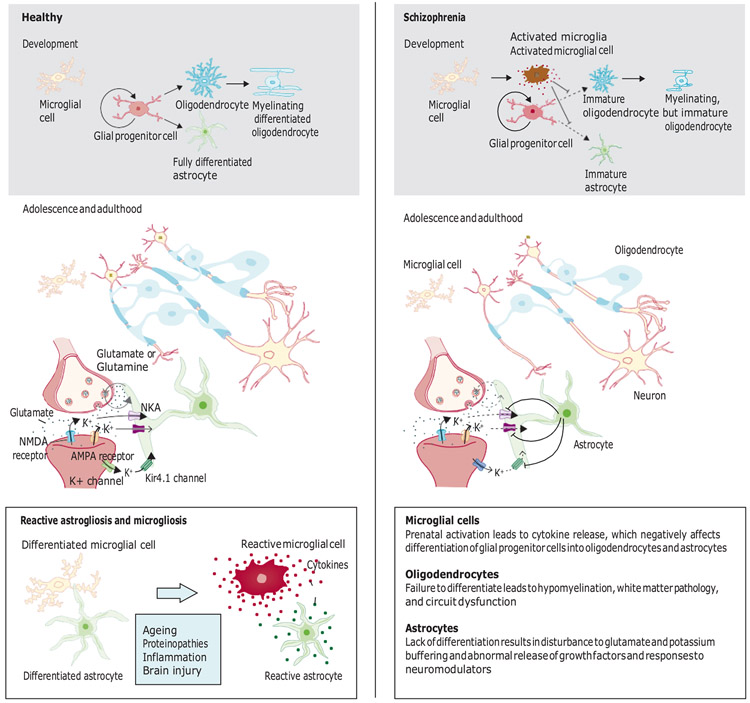Figure: A unified gliocentric model of schizophrenia.
In development, glial progenitor cells give rise to oligodendrocytes and astrocytes, following a tightly regulated differentiation pathway. We hypothesise that untimely immune activation of microglia during fetal development suppresses the differentiation of glial progenitor cells, resulting in immature morphology and abnormal functionality and numbers of oligodendrocytes and astrocytes. Deficits in oligodendrocyte maturation competence lead to structural hypomyelination and loss of white matter integrity. Failure of astrocytic differentiation results in reduced synaptic coverage and abnormal buffering of glutamate and potassium. The proposed model links disrupted glial cell differentiation to the initial event in schizophrenia, which differs from other conditions involving glial cells, in which fully differentiated glial cells undergo reactive changes (lower left panel). Reactive changes in glial cells might, however, occur in schizophrenia as secondary responses to, for example, synaptic dysregulation, lack of sleep, or drug exposure. NKA=sodium−potassium pump. K+=potassium ions.

